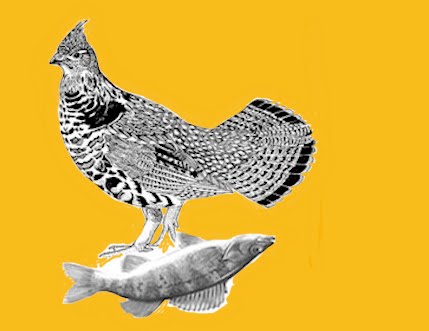
In true droning form, I will pick up where I left off back on June 17th, namely the misguided attention(which means misspent money) that the Government of Canada has allocated to having a bunch of lawyers ponder and pontificate on the poor sockeye returns in 2009. My point, distinct, thank God, from that of the old Indian hand, MP John Cummins, was that one bad season for Oncorhynchus nerka, should not call forth the deluge of dubious judicial expertise it has (just as was done in 1994 when a poor run also precipitated great stir and commissioning, that time led by the Honourable John Fraser).
Not that I would ever say "I told you so" but here we are in late August with worries now arising about the management and impact of the largest Fraser River sockeye run since 1913. Because fishermen have an irrepressible (and well-based) pessimism, many are now actually lamenting the effects of the surplus: reduced prices and the very real possibility that having so many horny adults pushing around in the spaning gravels, will actually reduce the reproductive success of the year class. Thus do well known phenomena from market economics -supply effects on price - and reproductive ecology - density dependence - confound what, one might think, should be the joys of bonanza.
Just as worried observers may fret about what to do with all that extra sockeye, so to should we faithful taxpayers be worried about the surplus "talent" that has been assembled and well-financed high atop the towers overlooking West Georgia street. What are we to do with the Cohen Commission now? Their press-releases show that slowing down the mighty money-eating engines of their inquiry, in light of the 2010 record sockeye run has not occurred to them or their political masters. I suppose you could give them all hip waders and send them out on the water to fish - but, alas, the dearth of actual field knowledge among most of the Commission's personnel would probably mean even more public expenditure -- i.e. the costs to the local search and rescue agencies as they try to locate these bumblers out in the wild.
Of course, as said before in these pages, a novel thought might be to re-assign the Commission to look into a real disappearance and fisheries resource tragedy, one that has played out for more than a decade up and down the BC coast, to wit, the loss of the saviour fish, the eulachon. But then, focusing attention on that species would mean that the federal government gave two hoots about a species whose value is not measurable in loonies and the profit margins of major companies. No, it would imply that they actually cared about coastal First Nations who have relied on this special little smelt since proverbial time immemorial.

And why would the Harper government want to start caring about Native people when it has already both apologized for, yet later denied the very history of colonial oppression.

No comments:
Post a Comment